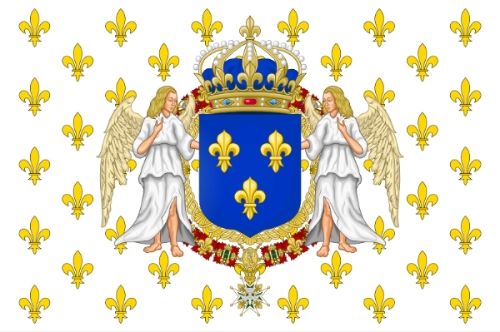Main events of 1775
Europe
The French demobilize a large amount of their forces while the British begin construction on 50 new ships of the line to keep up with the French expansion of the navy. [-750m. £, +50 ships of the line in 3 turns]
The Spanish lay down 25 ships of the line and 37 frigates to replace those expected to be given to the Dutch. When the Dutch do not honor their part of the treaty the ships become unnecessary and construction is temporarily stopped, but could be restarted. [-426m. £, ships partially built]
Despite the expulsion of the Jesuits Portugal remains largely a devoted Catholic country. The appointment of a number of secular Professors, highly critical of Church teachings, provoked an uproar in Lisbon. The University refused to back down even in the face of opposition which became violent during the year. Teachers have been attacked, children have been told not to attend schools, and the University in the middle of Lisbon is in a state of virtual siege, with only government troops keeping order. [-50m. £, -3% literacy, decline likely to continue]
Fearful of continued financial instability in Europe the Dutch government passes an ordinance to prevent Dutch banks from lending to foreign governments. As banks still lend to other foreign individuals and enterprises, which themselves either lend or are exposed to default risk, this does not really lessen the exposure of the Dutch banks to the risk of bankruptcy elsewhere. But it does make money harder to come by for foreign governments. [interest 1.5% higher for everyone]
There are fears in the Netherlands that its Republican structures are inadequate for the changing world. City councils are opened to non-Calvinists and militias are ordered to accept all volunteers, regardless of belief. Cities with large Evangelical populations pass ordinances and laws against Catholicism and use local militias to harass Catholics, tarnishing the traditional Dutch image of tolerance.
Peace is achieved in Brandenburg after the Imperial army is defeated there. The Evangelical leadership promises vague “compensation” for the displaced Catholics, though little is likely to come of it. The rebuilding of the country finally begins after nearly two decades of war. [-15m. £, +1 infrastructure]
As peace returns to Brandenburg so do the initiatives to promote crafts and industry that were started a few years ago by Frederick. The Evangelicals are happy to encourage pious hardworking Protestants to take up industry.
The Bavarians encourage more trade. It goes so-so. [send better orders next time, a bit more trade]
The Bavarians also attempt to levy “fair” taxes and fees on the merchants, as payment for the help the merchants receive during the rebuilding of the country. The merchants do not see these as particularly fair although the taxes are not exorbitant. [taxes set to normal level, slower growth]
Having to fight a lot of wars all over Europe the Austrians put a significant amount of thought into managing their supplies and minimizing the costs of these wars. By taking careful study and placing two generals in charge of supplies and their deliveries the Austrians manage to significantly cut the costs of their wars. [less upkeep while at war]
Part of the same reforms is the training of officers in handling supply lines, rear organization, etc. While hardly glorious the work has an effect and quite a few capable men are found to help the army operate efficiently. [-100m. £, +1 army quality]
The Austrian army continues its push into Poland. There is an attempt to organize a Polish resistance, but the Polish government quickly runs out of money to pay its soldiers. Together with talk of genocide against the Lithuanians and Russians this quickly destroys any legitimacy the government had. The Polish nobility is lining up to pledge their loyalty to the Austrians. [complete collapse of Poland]
The default of the previous year hits the nobles who live outside of Austria and Bohemia particularly hard. Hungarians especially are furious that they lost a significant amount of money due to the terrible management of the rulers in Vienna. There are loud demands for compensation.
The Sardinians begin a training program for their officers and soldiers. Colonel Suvorov quickly demonstrates his ability and is made the chief instructor at the military academy where he insists that even common soldiers undergo training. [-25m. £ per turn, +1 army quality per turn]
The Sardinians spend a lot of money trying to prop up the Bank of St. George that had lent large sums to the Austrians. The bank still fails, although not before taking a lot of government money that is unlikely to ever be repaid. [-75m. £]
The Venetians spend a significant amount of money trying to promote development in Dalmatia. There is still little of anything outside the few towns on the coast, but the extra money does help somewhat. [-20m. £, slightly faster growth in Dalmatia]
Venice seems to have finally hit its stride in military reforms. Old systems are tossed out, the use of mercenaries is now discontinued. The new professional officers corps is being trained. [-25m. £, +1 army and navy quality]
The Portuguese and Venetian fleets continue the blockade of Tripolitania, lessening to an extent pirate attacks near north Africa, although small pirate craft continue to harass some shipping. The Venetians land their army of 3,500 men at Tripoli, managing to take the city from its defenders. This force then begins a march across Tripolitania and is slaughtered mercilessly and efficiently by a large berber force in the middle of the desert. [-3,500 regulars to Venice]
In order to make up for the loss of the sound toll the Danish government begins to require all ships in transit to and from Russia to dock at Copenhagen and pay harbor fees. This brings in significant additional revenue. Unfortunately, together with the restoration of Russian tariffs this means that the Dutch lose much of their trade in the Baltic. [more trade income to Danes, less trade for the Dutch]
Danish forces from Norway move south and mass for an attack on Christiana. Meanwhile the second Danish army prepares to give battle to the Swedes in southern Sweden near Malmo. The battle in the south is a disaster for the Danes, as the more disciplined and organized Swedish army makes short work of them. The Swedes then turn north to relieve the siege of Christiana, forcing the Danish army there to withdraw further into Norway. [-6,000 regulars to Denmark, -2,000 regulars to Sweden]
The Danes do manage to finally score a naval victory against the Swedes, managing to impose a blockade over Sweden, cutting off the trade that had so far kept Sweden afloat financially. [-2 ships of the line to Sweden]
The Duchies of Livonia, Courland, and Estonia put together a joint army to resist the Dutch force of 8,000 men that has chosen to march against them from St. Petersburg. The Dutch make it as far as Tallinn and encamp there, but are forced to evacuate the city by sea after a much larger Baltic force threatens to retake the city.
The Russian civil war ends anticlimactically. The Derzhavin government, having held secret talks with the Zaporozhian Cossacks, agrees to grant the Cossack Hetmanate independence. In return the Cossacks arrest “Paul” and hand him over to the Russians together with the couple thousand soldiers in his army who were not Cossacks.
To fix finances he Russians re-impose tariffs on trade and begin to reassert their control over the country. The issues of Don Cossacks and former Pugachev followers remain, but elsewhere the country is returning to some semblance of order. The complete collapse of Poland has once again left Lithuanian lands in chaos and it will take some effort to restore control over them. [no more negative growth hooray!]
Having found no success with Austrian help the Greeks turn to Great Britain. The British provide a huge sum of money to the Greeks in return for the military use of the Greek ports. [-661m. to the UK]
To help with the finances of the country and to fund the ongoing war in Albania the Greeks raise taxes. So far so good. [higher taxes]
The Greeks raise 5,500 men and are joined by 10,000 British soldiers in their attempt to end the Albanian revolt. This force wins a number of battle against the large but disorganized Albanian resistance. At this rate it is likely that the rebels will lose within the next year. [-1,000 regulars to Britain and Greece, 22,000 rebels left]
A board set up by the Sultan to consider land reform finds enormous support, both among the peasants and among the landowners for a transition to fixed rents. The landowners, shaken by the country’s bankruptcy, believe a fixed income to be more useful while the peasants, especially those in Anatolia and Bulgaria, are eager to participate in the cash economy. [-250m. £, a lot of support for reform]
Americas
The British do not object and Patrick Henry becomes Prime Minister of North America, with the Governor-General taking a backseat to Henry’s government. George Washington joins this government as Minister of War and Benjamin Franklin as Minister of Domestic Affairs. This Ministry begins to assert its control over the Dominion, including limiting the power of provincial governors.
The Americans try to promote self-sufficiency within the colonies, although in a country that is largely based on trade these efforts are unlikely to succeed particularly well. [-20m. £, slightly higher growth]
The French begin to rebuild the plantations of Haiti, although the island is unlikely to ever again be the most prosperous in the Caribbean. [-25m. £, slightly higher growth on Haiti]
There appears to be an agreement between the Dutch and Spanish to hand over the silver mines to the Spanish, but the Dutch do not do so during the year, continuing to ship silver from the mines to the Netherlands. [+1,500m. £ to the Netherlands]
Despite apparent agreement, the Portuguese decide to charge Dutch traders in Brazil, and everywhere else in the Portuguese Empire, 25% tariffs on top of what the Portuguese traders pay. This ends any noticeable Dutch presence in Brazil and other Portuguese territories. [higher tariffs for Portugal, less trade for the Dutch]
Africa
An Ottoman expedition out of Mombasa secures the Kenyan and Tanzanian coasts, including the major hub at Dar-es-Salaam. This gives the Ottoman control over most of the East African interior trade, much of which is now directed up to the Persian Gulf, bypassing Zanzibar. The Portuguese and Dutch trade declines, as does the flow of slaves to the Dutch East Indies. [trade to Ottomans, less trade to Netherlands, Portugal, slower growth in DEI]
Asia
The Portuguese spend an enormous amount of money on setting up and subsidizing their trade in the Dutch East Indies. The Portuguese government demands that Portuguese traders be treated same as Dutch one and pay no taxes, customs, tariffs, or fees. Armed Portuguese ships ensure that the Dutch officials comply, although reluctantly. The enormous subsidies provided by the Portuguese mean that Dutch traders are unable to compete, leading to an essential collapse of Dutch East Asian trade during the year. The economic consequences are felt acutely in Amsterdam. [-150m. £ to Portugal, massive (and I mean massive) reduction in Dutch East Asian trade, recession in the Netherlands, more Portuguese trade in the East Indies]
The collapse of Dutch trade in the East Indies is beneficial to British traders out of India, helping both British trade and the development of British South Africa.
To make matters worse Java experiences its first major slave revolt during the year as slaves imported from East Africa seize large swaths of land and burn plantations. The Dutch military brutally puts an end to the uprising but the damage is not pretty.













